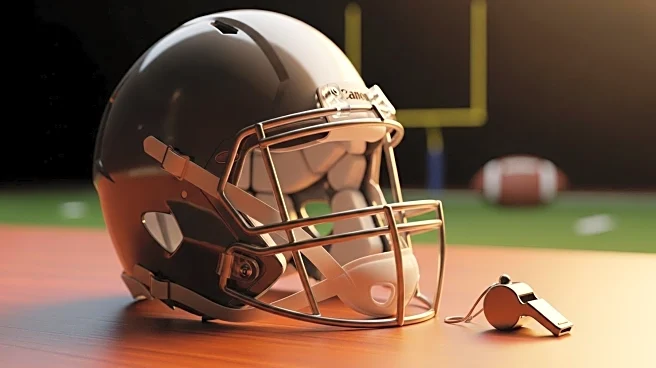What is the story about?
What's Happening?
Shilo Sanders, former Colorado Buffaloes football player, has expressed dissatisfaction with a $4,669 fine imposed by the NFL. The fine was levied after Sanders punched Buffalo Bills tight end Zach Davidson during the Tampa Bay Buccaneers' preseason finale. Sanders shared his frustration on his YouTube channel, questioning the logic behind the fine amount, which exceeds the typical earnings from a preseason game. Despite appealing the fine, Sanders was informed that the appeal was denied, and he would not be reimbursed. His father, Deion Sanders, known as Coach Prime, suggested that Shilo might pursue a career in entertainment, leveraging his talents in acting or streaming.
Why It's Important?
The incident highlights ongoing discussions about the fairness and impact of fines in professional sports, particularly in the NFL. Fines can significantly affect players, especially those not yet established in their careers. Sanders' public complaint may spark further debate about the NFL's disciplinary policies and their financial implications for players. Additionally, the situation underscores the potential for athletes to transition into entertainment careers, as suggested by Coach Prime, which could influence how players plan their futures beyond sports.
What's Next?
Shilo Sanders may explore opportunities in acting or streaming, as indicated by his father. This could lead to collaborations with media outlets like Well Off Media, where his brother Deion Jr. is involved. The NFL's handling of fines and appeals may continue to be scrutinized, potentially prompting discussions among players and league officials about policy adjustments. Sanders' case might encourage other players to voice their concerns about financial penalties and their impact on career earnings.
Beyond the Headlines
The broader implications of Sanders' situation touch on the intersection of sports and entertainment, highlighting how athletes can leverage their public personas for career opportunities outside of traditional sports paths. This trend reflects a growing movement where athletes use their platforms to engage with audiences in diverse ways, potentially influencing cultural perceptions of sports figures.















